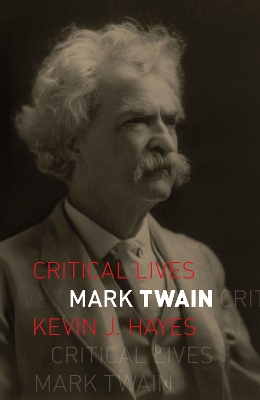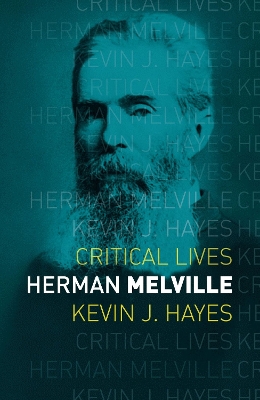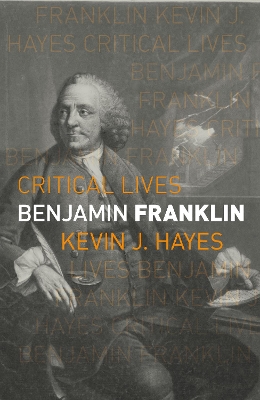Critical Lives
4 total works
The life of Edgar Allan Poe (1809 1849) is the quintessential writer's biography: great works arising from a life of despair, poverty, alcoholism, and a mysterious solitary death. It may seem like a cliche now, but it was Poe who helped shape this idea in the popular imagination. Despite of or inspired by his many hardships, Poe wrote some of the most well-known poems and intricately crafted stories in American literature. In "Edgar Allan Poe", Kevin J. Hayes argues that Poe's work anticipated many of the directions Western thought would take in the century to come, and he identifies links between Poe and writers and artists such as Walter Benjamin, Salvador Dali, Sergei Eisenstein and Jean Cocteau. Written in an approachable, jargon-free style, "Edgar Allan Poe" will appeal to all readers interested in biography, literary history, American culture and modern thought.
Samuel Langhorne Clemens, born on 30 November 1835 in Monroe County, Missouri, was never one to let the facts get in the way of a good story. A natural-born storyteller, Mark Twain freely adapted the incidents of his life and the stories he heard as a youth to embellish his fiction, as well as his travel writing and autobiography. However, this presents a problem to the modern biographer: in accounts of Twain's life, how does one tell what is true and what is just a colourful yarn?
In this new account of a gifted, charismatic character, Kevin J. Hayes reviews Twain's life, from his early journalism to his masterpiece Huckleberry Finn, from the travelogue Life on the Mississippi to his final work, the sprawling, episodic Mark Twain's Autobiography and the public-speaking engagements that took him around the world. Synthesizing new information and sifting through the evidence, Mark Twain is a fresh, clear-sighted account of a crucial American writer.
In this new account of a gifted, charismatic character, Kevin J. Hayes reviews Twain's life, from his early journalism to his masterpiece Huckleberry Finn, from the travelogue Life on the Mississippi to his final work, the sprawling, episodic Mark Twain's Autobiography and the public-speaking engagements that took him around the world. Synthesizing new information and sifting through the evidence, Mark Twain is a fresh, clear-sighted account of a crucial American writer.
American novelist and poet Herman Melville is considered by many to be the finest author his nation has produced. Born in New York in 1819, he achieved recognition as a leader of world literature with his daring stylistic innovations, and his masterpiece Moby-Dick continues to capture the attention of readers around the globe. This fast-paced biography surveys Melville's major works and tells the compelling story of his unpredictable professional and personal life. Kevin J. Hayes explores the revival of interest in Melville's work thirty years after his death, coinciding with the aftermath of the First World War and the rise of modernism. He examines the composition and reception of Melville's works, including his first two books, Typee and Omoo, his more ambitious works, and the short fiction, novels and poetry he wrote during the last forty years of his life. Incorporating a wealth of new information about Melville's life and the time in which he lived, Hayes offers an engaging introduction to the life of this celebrated but often misunderstood writer.
An action-packed retelling of the life and work of the polymath and so-called First American, Benjamin Franklin. All Benjamin Franklin biographers face a major challenge: they must compete with their subject. In one of the greatest autobiographies in world literature, Franklin has already told his own story, and subsequent biographers have often taken Franklin at his word. In this exciting new account, Kevin J. Hayes takes a different approach. Hayes begins when Franklin is eighteen and stranded in London, describing how the collection of curiosities he viewed there fundamentally shaped Franklin's intellectual and personal outlook. Subsequent chapters take in Franklin's career as a printer, his scientific activities, his role as a colonial agent, his participation in the American Revolution, his service as a diplomat, and his participation in the Constitutional Convention. Containing much new information about Franklin's life and achievements, Hayes's critical biography situates Franklin within his literary and cultural milieu.



